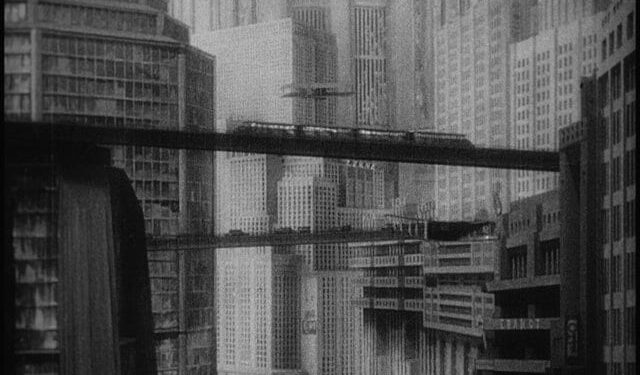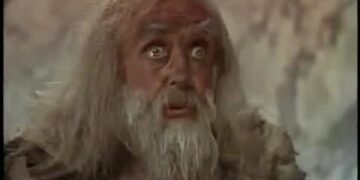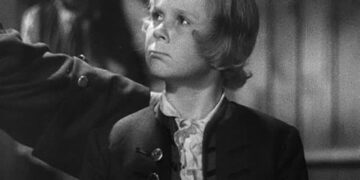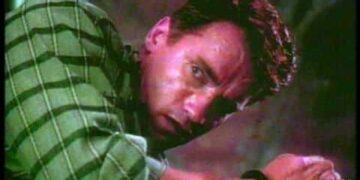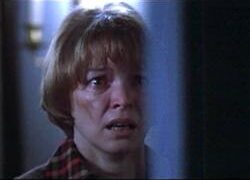“Metropolis” is a groundbreaking science fiction film directed by Fritz Lang, released in 1927. Set in a futuristic urban dystopia, the film explores themes of class struggle, industrialization, and the power of love.
Although “Metropolis” was initially met with mixed reviews and faced challenges during its production, it has since gained recognition as one of the most influential films in cinematic history.
Plot Summary of “Metropolis”
The story of “Metropolis” takes place in a divided society. The upper-class ruling elite reside in towering skyscrapers, while the working class toils beneath the city’s surface.
Freder Fredersen, the privileged son of the city’s mastermind, Joh Fredersen, becomes infatuated with Maria, a young woman from the working class. As Freder delves deeper into the harsh realities faced by the oppressed workers, he becomes determined to bridge the gap between the classes.
When and Where the Story Takes Place – Film Locations
“Metropolis” is set in a futuristic city, which was brought to life through impressive sets and visual effects. The filming took place in Berlin, Germany, during the 1920s.
The city’s architecture and industrial landmarks provided the perfect backdrop for the film’s dystopian setting. The iconic scenes were shot in large studios, with intricate sets that showcased the stark contrast between the upper and lower levels of the city.
Key Characters in “Metropolis” – Who’s Who
- Freder Fredersen: The privileged son of Joh Fredersen, the city’s ruler. Freder is initially unaware of the harsh realities faced by the working class but becomes determined to bring about change.
- Joh Fredersen: The powerful industrialist who controls the city. He is driven by ambition and control, but ultimately faces the consequences of his oppressive rule.
- Maria: A compassionate and charismatic figure who leads the working class in their fight for justice. She becomes a source of inspiration for Freder and a symbol of hope.
Memorable Quotes from “Metropolis”
- “The mediator between the head and the hands must be the heart.” – Maria
- “There can be no understanding between the hands and the brain unless the heart acts as a mediator.” – Freder
- “Metropolis must be the mediator between the brain and the muscles.” – Joh Fredersen
The Soundtrack of “Metropolis” by Gottfried Huppertz
The original score for “Metropolis” was composed by Gottfried Huppertz and played a crucial role in enhancing the film’s emotional impact.
Huppertz’s music perfectly captured the grandeur and tension of the story, with sweeping melodies and powerful orchestration. The soundtrack seamlessly blended with the visuals, creating a truly immersive experience for the audience.
Curiosities and Interesting Facts about “Metropolis”
- “Metropolis” was one of the most expensive films of its time, with a budget of over 5 million Reichsmarks.
- The film’s iconic robot, known as the “Maschinenmensch,” was inspired by the character of Maria. This groundbreaking portrayal of a humanoid robot set the stage for future science fiction films.
- The film faced challenges during its production, including conflicts between the director and the studio. Fritz Lang’s vision for the film was initially compromised, but he eventually managed to realize his artistic vision.
Tips for Cosplay and How to Dress like Johann and Freder Fredersen
If you’re inspired to bring the characters of Johann and Freder Fredersen to life through cosplay, here are some tips to help you achieve their distinctive looks:
- Johann Fredersen: To emulate the powerful industrialist, dress in a tailored suit with sharp lines and dark colors. Add a touch of authority with a cane and a confident demeanor.
- Freder Fredersen: For Freder’s more youthful and rebellious style, opt for a casual yet refined outfit. Combine a well-fitted shirt, suspenders, and trousers with a sense of purpose and determination in your eyes.
Remember, the key to successful cosplay is embodying the essence of the characters and bringing them to life with confidence and authenticity.
Thea von Harbou – Biography and Her 5 Best Works
Thea von Harbou, the talented screenwriter of “Metropolis,” had a remarkable career in both literature and cinema. Here are five of her best works:
- “Das indische Grabmal” (The Indian Tomb): A novel that explores themes of adventure and forbidden love in an exotic setting.
- “Mensch ohne Namen” (Man Without a Name): A gripping novel centered around a protagonist who loses his identity and embarks on a journey of self-discovery.
- “Labyrinth des Grauens” (Labyrinth of Horror): A thrilling mystery novel filled with suspense and unexpected twists.
- “Der Hund von Baskerville” (The Hound of the Baskervilles): A German adaptation of the famous Sherlock Holmes novel by Arthur Conan Doyle.
- “Die Ehe im Kreise” (Marriage in the Circle): A thought-provoking novel that delves into the complexities of relationships and societal expectations.
Other Media by Fritz Lang – List and Description of 5 Works
Fritz Lang, the visionary director of “Metropolis,” contributed greatly to the world of cinema. Here are five other notable works by him:
- “M” (1931): A psychological thriller that follows the pursuit of a child murderer by both the police and the criminal underworld.
- “The Testament of Dr. Mabuse” (1933): A chilling crime drama that delves into the mind of a criminal mastermind and the chaos he unleashes.
- “The Big Heat” (1953): A gritty film noir that explores corruption and revenge in the world of organized crime.
- “The Woman in the Window” (1944): A suspenseful psychological thriller about a man who becomes entangled in a murder investigation.
- “Fury” (1936): A gripping drama that depicts the consequences of mob violence and the pursuit of justice.
Other Works by Thea von Harbou – List and Description of 5 Works
In addition to her collaboration with Fritz Lang on “Metropolis,” Thea von Harbou had a prolific career as a writer. Here are five other notable works by her:
- “Das indische Tuch” (The Indian Scarf): A gripping murder mystery novel set in a small German town.
- “Der Herr der Liebe” (The Master of Love): A tragic love story that explores the complexities of human relationships.
- “Das Erbe der Guldenburgs” (The Inheritance of the Guldenburgs): A family saga that delves into the lives and secrets of a wealthy German dynasty.
- “Ein Mann wie Maximilian” (A Man Like Maximilian): A novel that follows the journey of a charismatic and enigmatic protagonist.
- “Das Schweigen im Walde” (The Silence in the Forest): A haunting tale set in a remote forest, where secrets and darkness lurk.
Book Club Discussion Questions for “Metropolis”
- How does “Metropolis” explore the theme of class struggle, and what relevance does it have in today’s society?
- Discuss the character development of Freder Fredersen throughout the film. How does he evolve and what drives his actions?
- Analyze the role of Maria in “Metropolis.” How does she inspire and lead the working class towards change?
- The visual effects and set design of “Metropolis” were groundbreaking for its time. How do these elements contribute to the overall atmosphere and storytelling?
- Explore the symbolism of the “Maschinenmensch” (robot) in the film. What does it represent, and how does it tie into the themes of the story?
10 Similar Movies to “Metropolis”
- “Blade Runner” (1982)
- “Brazil” (1985)
- “Dark City” (1998)
- “The City of Lost Children” (1995)
- “Fahrenheit 451” (1966)
- “A Clockwork Orange” (1971)
- “Children of Men” (2006)
- “1984” (1984)
- “Elysium” (2013)
- “The Matrix” (1999)
10 Similar Novels with Similar Plots to “Metropolis”
- “1984” by George Orwell
- “Brave New World” by Aldous Huxley
- “Fahrenheit 451” by Ray Bradbury
- “The Time Machine” by H.G. Wells
- “We” by Yevgeny Zamyatin
- “The Iron Heel” by Jack London
- “The Machine Stops” by E.M. Forster
- “The Hunger Games” by Suzanne Collins
- “Never Let Me Go” by Kazuo Ishiguro
- “The Giver” by Lois Lowry
Conclusion
“Metropolis” by Fritz Lang continues to captivate audiences with its powerful storytelling, visually stunning imagery, and thought-provoking themes.
The film’s exploration of social inequality, love, and the human spirit resonates even today, making it a timeless masterpiece of cinema. Whether you’re a fan of science fiction, classic films, or thought-provoking narratives, “Metropolis” is a must-watch that will leave a lasting impression.
Join us on this journey into the heart of the metropolis and discover the depths of its captivating story.


